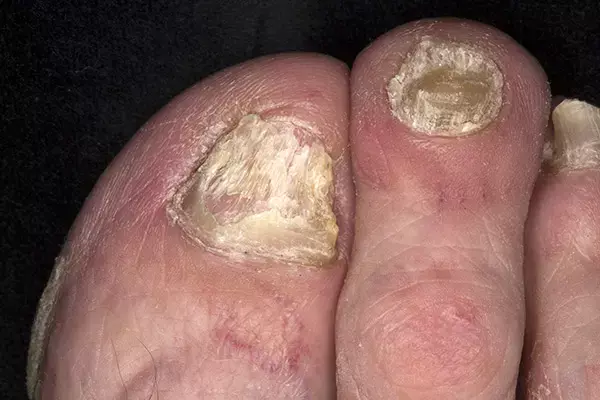- Home
- Medical news & Guidelines
- Anesthesiology
- Cardiology and CTVS
- Critical Care
- Dentistry
- Dermatology
- Diabetes and Endocrinology
- ENT
- Gastroenterology
- Medicine
- Nephrology
- Neurology
- Obstretics-Gynaecology
- Oncology
- Ophthalmology
- Orthopaedics
- Pediatrics-Neonatology
- Psychiatry
- Pulmonology
- Radiology
- Surgery
- Urology
- Laboratory Medicine
- Diet
- Nursing
- Paramedical
- Physiotherapy
- Health news
- Fact Check
- Bone Health Fact Check
- Brain Health Fact Check
- Cancer Related Fact Check
- Child Care Fact Check
- Dental and oral health fact check
- Diabetes and metabolic health fact check
- Diet and Nutrition Fact Check
- Eye and ENT Care Fact Check
- Fitness fact check
- Gut health fact check
- Heart health fact check
- Kidney health fact check
- Medical education fact check
- Men's health fact check
- Respiratory fact check
- Skin and hair care fact check
- Vaccine and Immunization fact check
- Women's health fact check
- AYUSH
- State News
- Andaman and Nicobar Islands
- Andhra Pradesh
- Arunachal Pradesh
- Assam
- Bihar
- Chandigarh
- Chattisgarh
- Dadra and Nagar Haveli
- Daman and Diu
- Delhi
- Goa
- Gujarat
- Haryana
- Himachal Pradesh
- Jammu & Kashmir
- Jharkhand
- Karnataka
- Kerala
- Ladakh
- Lakshadweep
- Madhya Pradesh
- Maharashtra
- Manipur
- Meghalaya
- Mizoram
- Nagaland
- Odisha
- Puducherry
- Punjab
- Rajasthan
- Sikkim
- Tamil Nadu
- Telangana
- Tripura
- Uttar Pradesh
- Uttrakhand
- West Bengal
- Medical Education
- Industry
High sensitivity CRP may Predict Psoriatic Arthritis in Psoriasis Patients, suggests research

Researchers have found in a new canadian prospective cohort study that high sensitivity C-reactive protein (hsCRP) may serve as a more accessible and reliable marker of inflammation, potentially predicting the development of psoriatic arthritis (PsA) in individuals with psoriasis.
They aimed to assess whether high sensitivity c-reactive protein (hsCRP) could predict the development of psoriatic arthritis (PsA) in patients with psoriasis.
They analyzed data from a prospective cohort of patients with psoriasis without PsA at enrollment. Participants were assessed annually by a rheumatologist for signs and symptoms of PsA. Information on patient demographics, psoriasis features, medications and musculoskeletal symptoms was collected. hsCRP levels were measured in serum samples collected at baseline using standard commercial assays.
The association between hsCRP levels and risk of development of PsA was assessed using multivariable Cox proportional hazards model adjusted for age, sex, psoriasis severity and duration, nail lesions, body mass index (BMI), fatigue, and medication use.
Results: A total of 589 patients with psoriasis followed from 2006 to 2019 were analyzed. 57 patients developed PsA during the follow up period. Mean level of hsCRP was 3.1±5.5 mg/L (hsCRP levels in incident PsA cases: 5.4±13.1). Significantly higher levels of hs-CRP at baseline were found in patients with arthralgia, obesity and in females. Higher hs-CRP levels were associated with future development of PsA in multivariable analysis (hazard ratio (HR) 1.04, 95% confidence interval (CI) 1.01, 1.07, p=0.007).
Similar effect size was seen in males and females. No significant interaction was found between hsCRP and sex or BMI. Higher levels of systemic inflammation, as measured by hsCRP, are associated with future development of PsA.
Reference:
Eder L, Li X, Chandran V, Rosen CF, Cook RJ, Gladman DD. Higher levels of high-sensitivity CRP are associated with future development of Psoriatic Arthritis in Psoriasis: A prospective cohort study. Arthritis Care Res (Hoboken). 2025 Apr 2. doi: 10.1002/acr.25539. Epub ahead of print. PMID: 40176403.
Dr. Shravani Dali has completed her BDS from Pravara institute of medical sciences, loni. Following which she extensively worked in the healthcare sector for 2+ years. She has been actively involved in writing blogs in field of health and wellness. Currently she is pursuing her Masters of public health-health administration from Tata institute of social sciences. She can be contacted at editorial@medicaldialogues.in.
Dr Kamal Kant Kohli-MBBS, DTCD- a chest specialist with more than 30 years of practice and a flair for writing clinical articles, Dr Kamal Kant Kohli joined Medical Dialogues as a Chief Editor of Medical News. Besides writing articles, as an editor, he proofreads and verifies all the medical content published on Medical Dialogues including those coming from journals, studies,medical conferences,guidelines etc. Email: drkohli@medicaldialogues.in. Contact no. 011-43720751


